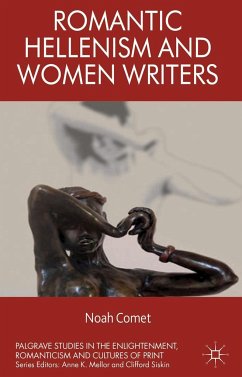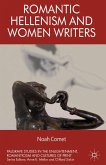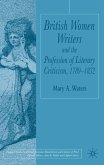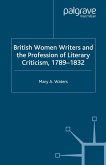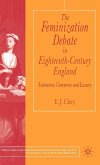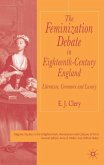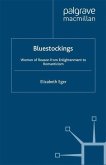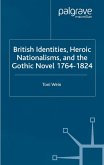Examining popular contexts of Greek revivalism associated with women, Comet challenges the masculine narrative of English Classicism by demonstrating that it thrived in non-male spaces, as an ephemeral ideal that betrayed a distrust of democratic rhetoric that ignored the social inequities of the classical world.
"...a refreshing new look at Greek influences in the Romantic period... While the three chapters on Aikin, Hemans, and Landon are examples of scholarship at its most impressive, innovative, and convincing, my favourite chapters are, after Comet's simply remarkable and articulate 'Introduction', the first chapter, 'Hellenism and Women's Print Culture', and the final pages, 'Conclusion: Elizabeth Barrett Browning and the Reception of Romantic Women's Hellenism'. No reader interested either in Romanticism or in the English reception of Greece, in any period, should miss the opportunity of studying closely this astute, concise, and engaging account by Noah Comet." K. M. Wheeler, The BARS Review
"Even though the book is titled Romantic Hellenism and Women Writers (my emphasis), one of Comet's strengths is to distinguish the women from one another, showcasing each as a singularly individual author in a series of case study chapters... Most intriguing to me was Comet's workon Letitia Elizabeth Landon... He performs an especially fine reading of her poem 'The Thessalian Fountain' (1835) and, aware that it is unfamiliar and hard to find, includes a copy of it and two other Landon poems in an appendix... Of particular interest will be Comet's findings on women's print culture of 1820s and -30s England... What Comet unearths in the periodical archives is no less than a curriculum for a public classical education; in his first (and in some ways
most innovative) chapter he 'reconstruct[s] a syllabus' for this educational programme and 'interpret[s] the pedagogy that informed it' (19)." Amy Muse, SHARP News
"Even though the book is titled Romantic Hellenism and Women Writers (my emphasis), one of Comet's strengths is to distinguish the women from one another, showcasing each as a singularly individual author in a series of case study chapters... Most intriguing to me was Comet's workon Letitia Elizabeth Landon... He performs an especially fine reading of her poem 'The Thessalian Fountain' (1835) and, aware that it is unfamiliar and hard to find, includes a copy of it and two other Landon poems in an appendix... Of particular interest will be Comet's findings on women's print culture of 1820s and -30s England... What Comet unearths in the periodical archives is no less than a curriculum for a public classical education; in his first (and in some ways
most innovative) chapter he 'reconstruct[s] a syllabus' for this educational programme and 'interpret[s] the pedagogy that informed it' (19)." Amy Muse, SHARP News

